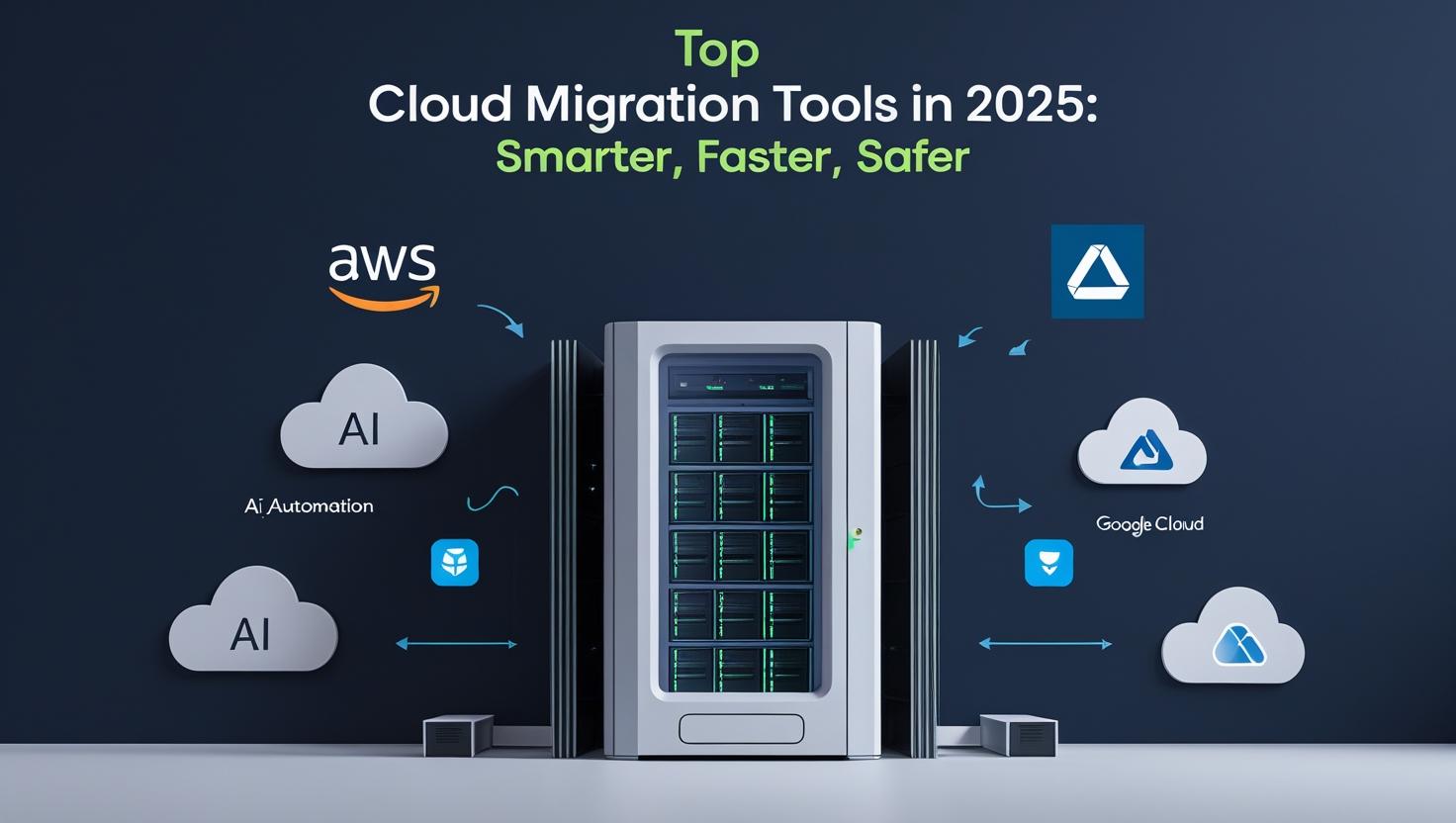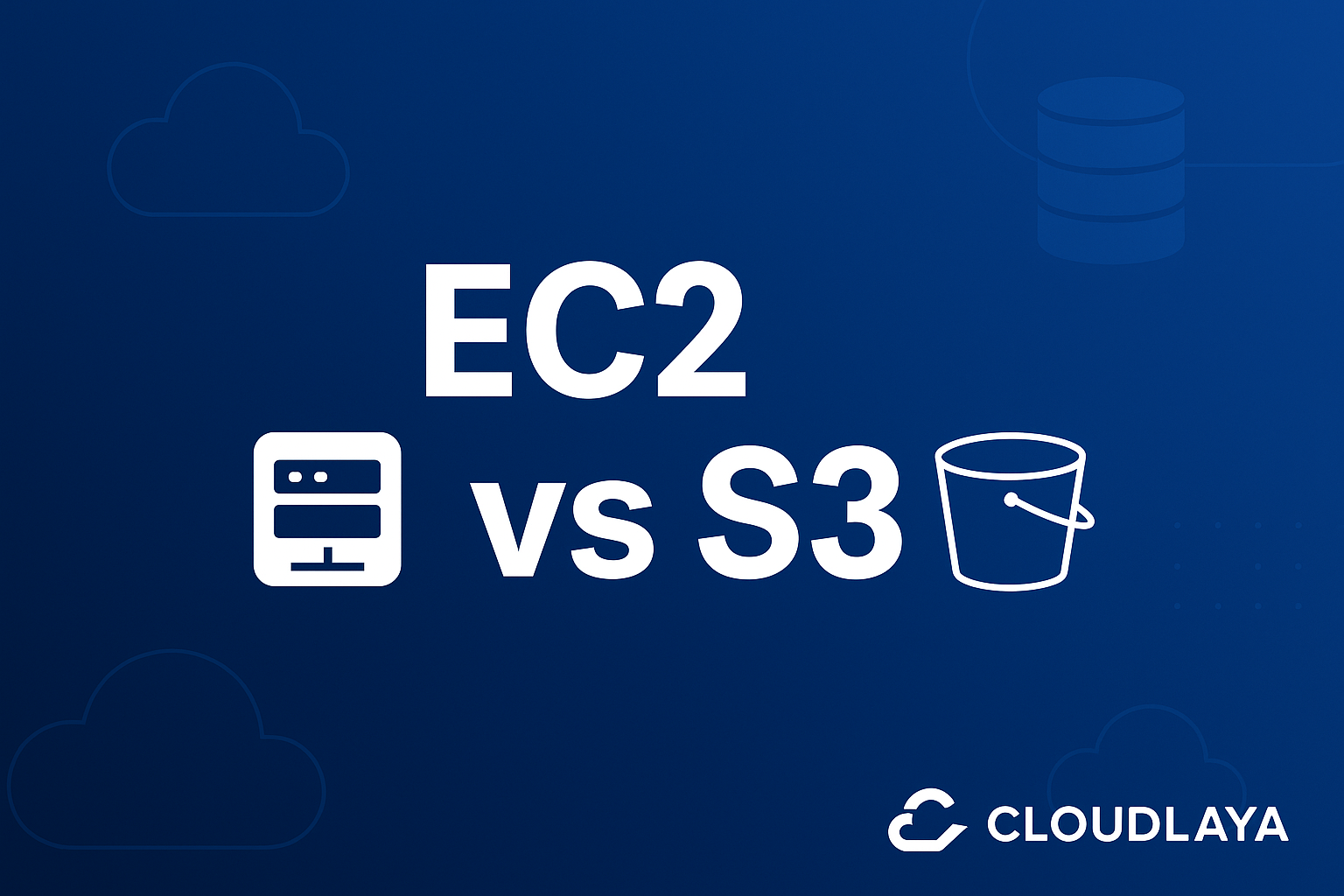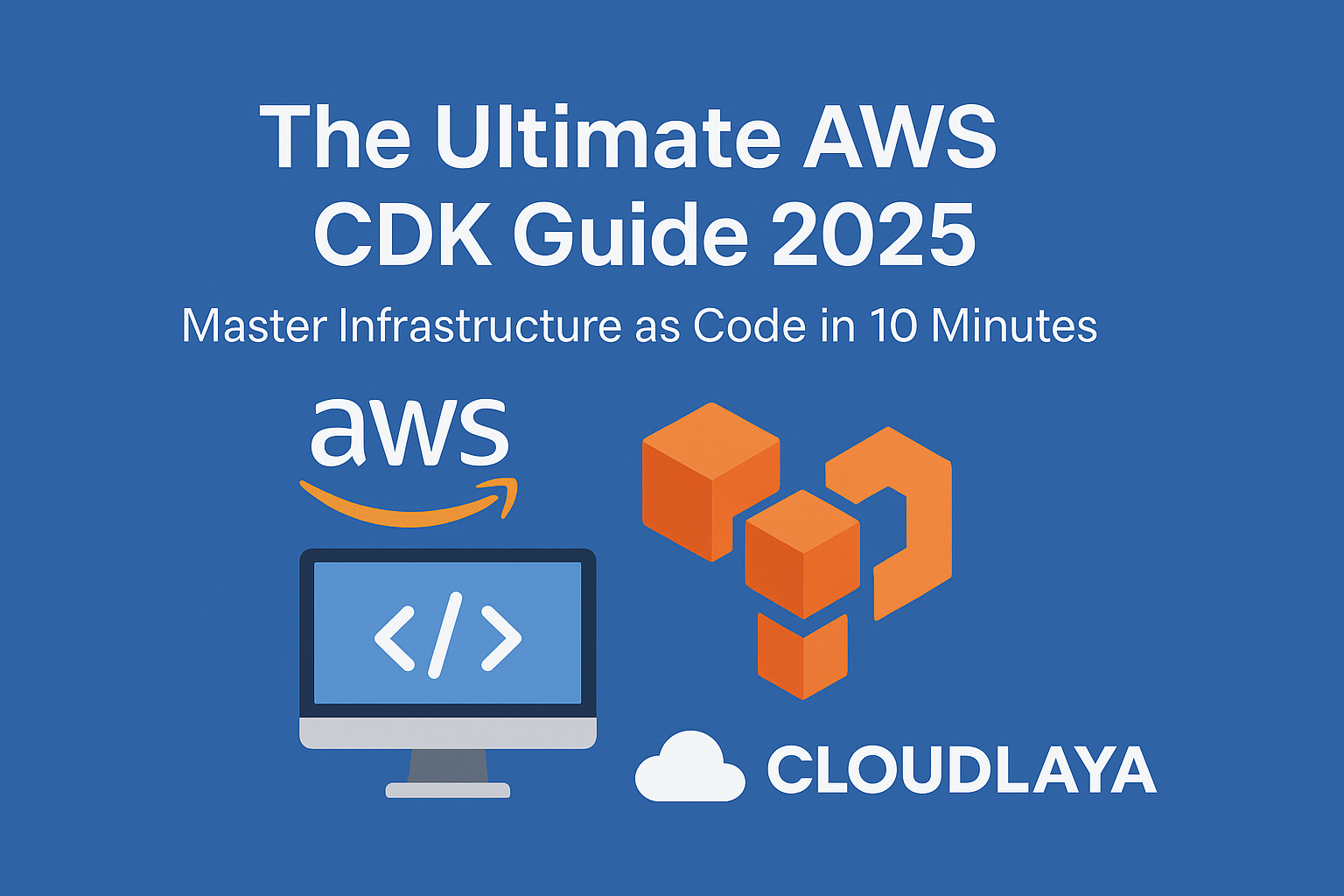
Types of Cloud Hosting for Businesses in 2025
Understanding the different types of cloud hosting is essential for businesses looking to scale, stay secure, and optimize IT costs. From public to private, hybrid, and multi-cloud models, each hosting type offers unique advantages. In this guide, Cloudlaya breaks down the major types of cloud hosting to help you choose the best fit for your business goals.Cloudlaya explores the different types of cloud hosting-public, private, hybrid, and multi-cloud-so you can find the best fit for your business goals.
What Is Cloud Hosting?
Cloud hosting is a modern take on website and app storage that spreads your files across several virtual servers in the cloud. Instead of parking everything on a single machine like standard hosting, this setup pulls power, memory, and space from a whole group of connected servers whenever you need them.
Because of this, cloud hosting tends to be more reliable, faster, and easier to grow with, which makes it a smart pick for any business-so regardless of size-that sees visitors surge up and down or counts on steady uptime for daily operations.
Some big benefits of cloud hosting are:
- High availability: If one server stumbles, another picks up the load so users never notice.
- Elasticity: You can add or cut resources in moments to match current traffic.
- Resource pooling: Virtual machines change automatically to soak up sudden spikes.
With those basics in mind, let us look at the main kinds of cloud hosting so you can find the option that fits your needs best.
Learn More Here About Cloud Hosting.
What are the types of cloud hosting?
There are are 4 types of cloud hosting.
1. Public Cloud Hosting |
|
|---|---|
| Definition: | Public cloud hosting uses shared cloud infrastructure provided by third-party vendors like AWS, Google Cloud, Azure, or DigitalOcean. |
| Best For: | Startups, small businesses, and projects needing cost-effective, scalable resources. |
| Benefits: | • Pay-as-you-go pricing • Easy to scale • No maintenance responsibilities |
| Cloudlaya Insight: | We help clients in Nepal and beyond access global public clouds with local support and billing. |
2. Private Cloud Hosting |
|
|---|---|
| Definition: | Private cloud hosting provides a dedicated cloud environment for a single business. It’s hosted either on-premises or in a third-party data center. |
| Best For: | Enterprises with high security, compliance, or performance requirements. |
| Benefits: | • Full control over data • Better compliance (HIPAA, GDPR) • Enhanced security |
| Cloudlaya Advantage: | We offer private cloud solutions in Nepal and the US, tailored to regulated industries like healthcare and finance. |
3. Hybrid Cloud Hosting |
|
|---|---|
| Definition: | Hybrid cloud combines both public and private cloud infrastructures, allowing data and applications to move between them. |
| Best For: | Businesses need a balance of scalability and security. |
| Benefits: | • Greater flexibility • Optimized cost and performance • Improved disaster recovery |
| Use Case: | A business can keep sensitive data in a private cloud while using the public cloud for less-critical workloads. |
4. Multi-Cloud Hosting |
|
|---|---|
| Definition: | Multi-cloud hosting uses multiple cloud providers to avoid vendor lock-in and improve redundancy and resilience. |
| Best For: | Organizations with global reach or specific workload distribution needs. |
| Benefits: | • Avoids vendor dependency • Better uptime and performance • Optimized cost per workload |
| Cloudlaya Differentiator: | As a multi-cloud provider (AWS, Azure, Google Cloud, DigitalOcean, Zoho), we manage and optimize multi-cloud environments for clients globally. |
✅ Choosing the Right Cloud Hosting Type
| Business Need | Recommended Cloud Type |
|---|---|
| Cost-efficiency for startups | Public Cloud |
| Maximum security and compliance | Private Cloud |
| Scalable yet secure infrastructure | Hybrid Cloud |
| Avoiding vendor lock-in, global apps | Multi-Cloud |
Still unsure? Contact Cloudlaya for a free consultation tailored to your business needs.
Cloud Service Models: IaaS, PaaS, and SaaS
Besides the types of cloud hosting, it’s also essential to understand cloud service models. These define how much control you want over infrastructure vs. how much you want your provider to handle.
Infrastructure as a Service (IaaS)
Definition:
IaaS delivers key cloud building blocks-virtual machines, storage, and networking-rented when needed. You control the OS and software; the provider looks after the physical servers.
Examples:
AWS EC2, Azure Virtual Machines, Google Compute Engine
Best For:
- IT teams that need full control
- Scalable workloads
- Custom cloud environments
Cloudlaya Role:
We guide you in designing IaaS setups, tracking resource use, and tuning costs and performance.
Platform as a Service (PaaS)
Definition:
PaaS gives developers a ready-to-use platform so they can build, test, and launch apps without fussing over the hardware.
Examples:
Heroku, Google App Engine, Azure App Service
Best For:
- Development teams
- Startups building apps
- Projects with quick go-to-market needs
Benefits:
- Faster coding and delivery
- Automatic scaling and updates
- No infrastructure headaches
Cloudlaya Insight:
We set up and grow PaaS projects with CI/CD pipelines and tools, helping teams deliver apps at speed.Infrastructure as a Service (IaaS)
Definition: IaaS provides virtualized computing resources over the Internet, giving users control over operating systems, storage, and networks without the hassle of physical servers.
Examples: AWS EC2, Azure Virtual Machines, Google Compute Engine
Best For:
- IT teams that need full controlScalable workloads
- Custom cloud environments
Cloudlaya Role: We help you architect IaaS environments, monitor resource usage, and configure best practices for cost and performance.
Software as a Service (SaaS)
Definition
Software as a Service, or SaaS, lets you run apps straight from the web. Because the vendor takes care of hosting and maintenance, all you really do is log in and start working.
Examples
Some of the SaaS products we support as partners or resellers include Google Workspace, Zoho, Salesforce, and Dropbox, enabling smooth adoption and localized onboarding for your team.
Best For
SaaS is perfect for companies that need software up and running fast. Its especially handy for team collaboration, customer relationship management, and cloud-based email.
Benefits
Forget about lengthy installs or troublesome upgrades. With SaaS, you can reach your apps from any device with internet. You usually pay a simple monthly or yearly fee.
Cloudlaya’s Role
Cloudlaya helps businesses launch SaaS on public or hybrid clouds, taking care of licensing, onboarding, and custom tweaks along the way.
✅ Summary: Matching Hosting Type to Business Needs
Here’s how different types of cloud hosting align with your goals:
| Business Need | Recommended Cloud Hosting | Service Model |
|---|---|---|
| Cost-effective and scalable | Public Cloud | IaaS / PaaS |
| Maximum security and compliance | Private Cloud | IaaS |
| Flexible control and disaster recovery | Hybrid Cloud | IaaS / PaaS |
| Global coverage and tool specialization | Multi-Cloud | IaaS / SaaS |
| No-fuss productivity tools | Public Cloud | SaaS |
Why Choose Cloudlaya for all types of Cloud Hosting?
When it comes to implementing the right types of cloud hosting, the technology alone isn’t enough. You need a trusted partner who understands your business environment, compliance needs, and growth goals. That’s where Cloudlaya comes in. [Schedule free Consultations]
🌍 Local Expertise, Global Reach
We connect Nepalese businesses with global providers like AWS, Azure, Google Cloud, and Zoho—plus localized billing and dedicated support.
🧩 Multi-Cloud Mastery
We help you deploy the right mix of public, private, hybrid, or multi-cloud solutions—built around your operations.
🛠️ Full-Service Support
From setup to scaling, we offer end-to-end services including migration, security, monitoring, and cost optimization.
🔐 Security & Compliance
We specialize in secure cloud solutions tailored to healthcare, finance, and education—compliant with global standards.
🤝 Transparent, Local Billing
We simplify billing with NPR pricing and local service—no more exchange rate worries or international invoices.
FAQ’s Related to All Types of Cloud Hosting.
1. What are the different types of cloud hosting available?
The main types of cloud hosting are public cloud, private cloud, hybrid cloud, and multi-cloud. Each offers unique benefits in terms of scalability, security, and flexibility. Public cloud is ideal for cost efficiency, while private cloud suits businesses needing strict compliance. Hybrid cloud blends both, and multi-cloud helps avoid vendor lock-in.
2. Which type of cloud hosting is most cost-effective for small businesses or startups?
For startups, public cloud hosting is usually the best choice due to its pay as you go pricing, fast setup, and easy scalability. It allows businesses to grow without a heavy upfront investment in IT infrastructure.
3. How does hybrid cloud hosting differ from multi-cloud hosting?
Hybrid cloud combines public and private cloud environments, allowing data and applications to move between them freely. Multi-cloud, on the other hand, utilizes multiple public cloud providers like AWS, Azure, and Google Cloud to distribute workloads to avoid reliance on a single vendor.
4. Is private cloud hosting suitable for industries with strict compliance requirements?
Definitely, private cloud hosting works best for the healthcare and finance sectors, which have stringent rules on data safety and compliance (HIPAA, GDPR). For these industries, Cloudlaya provides secure and compliant custom solutions.
5. Why should I choose Cloudlaya for my cloud hosting needs?
As a cloud reseller and solution integrator for AWS, Azure, Google Cloud, Zoho, and others, Cloudlaya has made a name for itself. We have several advantages such as handling localized billing in Nepal, expert help, multi-cloud oversight, and comprehensive setup support which simplifies cloud adoption for any size business.
Final Thoughts
Understanding the different types of cloud hosting helps you choose the right solution for performance, security, and growth. Whether you’re a startup in Kathmandu or a global enterprise, Cloudlaya provides end-to-end support for public, private, hybrid, and multi-cloud environments.


